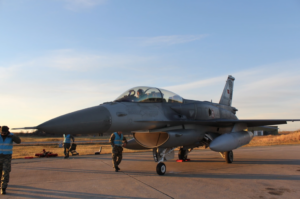
The Biden administration last Friday evening announced it has officially approved the potential $23 billion deal with Turkey for F-16 fighter jets and an $8.6 billion sale of F-35 aircraft to Greece. The U.S. decision to move forward on the F-16 foreign military sale with Turkey had been held up due to human rights concerns from some lawmakers and Ankara’s delay in ratifying Sweden’s bid to join NATO, which it officially approved earlier in the week. “My approval of Turkey’s…

 By
By 











